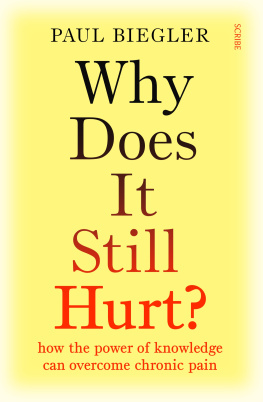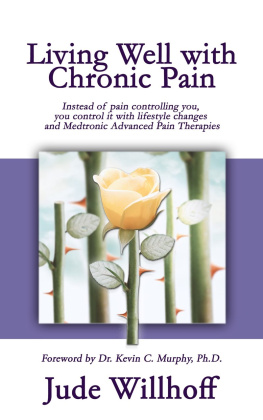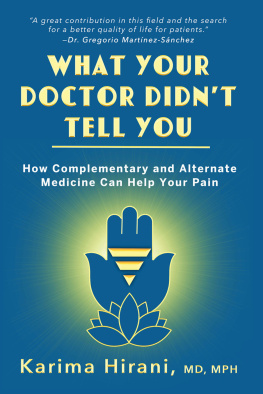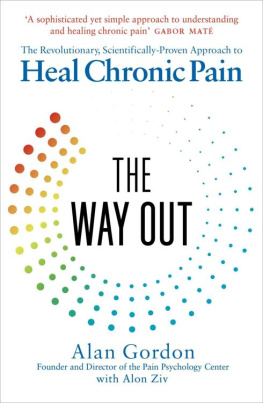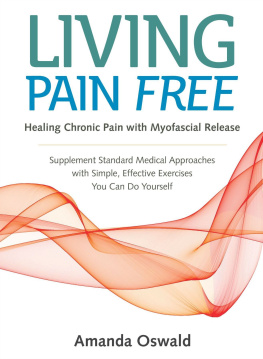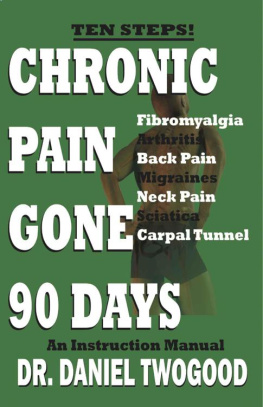
Why Does It Still Hurt?
Paul Biegler is a journalist, academic, and former doctor specialising in emergency medicine. His health and science writing has been published in The Age , The Sydney Morning Herald , Good Weekend , The Australian Financial Review , Cosmos , New Philosopher , and Arena , and he is the author of The Ethical Treatment of Depression , which won the Australian Museum Eureka Prize for Research in Ethics.
To the memory of Andrew Sherman
Scribe Publications
1820 Edward St, Brunswick, Victoria 3056, Australia
2 John St, Clerkenwell, London, WC1N 2ES, United Kingdom
3754 Pleasant Ave, Suite 100, Minneapolis, Minnesota 55409, USA
Published by Scribe 2023
Copyright Paul Biegler 2023
All rights reserved. Without limiting the rights under copyright reserved above, no part of this publication may be reproduced, stored in or introduced into a retrieval system, or transmitted, in any form or by any means (electronic, mechanical, photocopying, recording or otherwise) without the prior written permission of the publishers of this book.
The moral rights of the author have been asserted.
The advice in this book is not intended to replace the services of trained health professionals or be a substitute for medical advice. You are advised to consult with your health care professional with regard to matters relating to your health, and in particular regarding matters that may require diagnosis or medical attention.
Scribe acknowledges Australias First Nations peoples as the traditional owners and custodians of this country, and we pay our respects to their elders, past and present.
978 1 922585 23 3 (Australian edition)
978 1 914484 15 5 (UK edition)
978 1 957363 27 1 (US edition)
978 1 922586 88 9 (ebook)
Catalogue records for this book are available from the National Library of Australia and the British Library.
scribepublications.com.au
scribepublications.co.uk
scribepublications.com
Contents
INTRODUCTION
CHAPTER 1
how the past prompts your brain to protect you
CHAPTER 2
correcting the brains image of the body
CHAPTER 3
how new beliefs can rewire your brain
CHAPTER 4
the importance of regular exercise
CHAPTER 5
questions about surgery
CHAPTER 6
the role of hypnosis in treating pain
CHAPTER 7
emotion, memory, and the neurological reality of chronic pain
CONCLUSION
Introduction
The Card Trick
It was one of those searing summer days in Australia where you leave the protective dome of your car and know that your scalp is going to get fried on the ten-foot scuttle across the pavement to the nearest shade. My target, on this glaring Tuesday morning in November 2019, was the sheltered portico of an anonymous glass-fronted building in the Melbourne suburb of Moorabbin; thats an Aboriginal word meaning resting place, but, in these modern times, the place is a hive of activity, from the workaday hum of cheap Chinese restaurants to the whir of auto repair shops in a series of drab industrial estates. I beelined for the sliding glass doors and slipped into the cool confines of the buildings atrium, where I did a quick recce and spotted the sign I was looking for: Rehabilitation Medicine Group. Inside, neutral walls were splashed with the contemporary hues of regulation office art; there was a reception counter and a row of sleek white chairs smudged with the just-discernible grey of repeat users. Dr Frieds 11 oclock? chimed the receptionist who, when I nodded assent, motioned me to sit down.
There is something about doctors waiting rooms that, like the barber shop and airline travel, saps your will and inspires a kind of helplessness as you hand control to the physician, hairdresser, or pilot, as the case may be. I entered that fugue state, fidgeted with my phone, then lapsed into a meditation on why I was sitting here waiting to see a pain expert. And whether I really needed to be. I consider myself to be medically literate. I had been, after all, a doctor for 20 years, a decade of which I worked as an emergency physician, mopping up everything that disease and trauma throws at a person to put them at deaths door. Ive also conducted a decent slab of my own research, including a PhD and a postdoc on how our decision-making gets skewed by things as varied as depression and the subconscious tweaks of advertising. To top it off, Im a science journalist, with the latest research filling my inbox on a daily basis. With a CV like that, youd think Id be in the box seat to nail the answer to my own medical dilemma. But there I sat, an ex-medico stuffed full of knowledge, in a state of hopeless confusion.
The source of my inner turmoil had begun on a wintry morning five months earlier. Id woken with a sore right knee and had to push through tightness and a nagging ache when I walked my kids to school. I put it down to basketball and overdoing my regular jogs through the park. But five weeks in, Id had enough. I happen to have a mate whos a physiotherapist and an expert diagnostician, so I decided it was time to get professionally reacquainted. Paolo is a tall, athletic man, whose dark hair and beard Ive watched grey in recent years as weve both moved into our 50s. I managed to catch Paolo in his rooms in bayside Melbourne, where he greeted me with the relaxed demeanour of a friend, tinged with the subtle gravitas of the health professional. I had to climb a flight of stairs to get to his office and did it wincing, holding onto the handrail. Paolo put my knee through its paces, with some tests to see how far I could bend it and whether I could squat on that leg. It hurt. Enough to bring tears to my eyes. But pain, it seemed, was a prerequisite of the diagnosis; I had torn, Paolo said, a piece of cartilage in my knee called the medial meniscus. And he was right the diagnosis was confirmed a few weeks later with an MRI scan. But making the diagnosis, it would turn out, was the easy part. The hard problem was what, exactly, to do about it?
I know an orthopaedic surgeon with impeccable credentials, a former colleague whom I hold in high regard, so I consulted him, and his advice was clear: surgery to trim the tear would help my pain, which would otherwise continue a waxing and waning course over an unspecified period of time. In fact, hed had the very same surgery himself, with an excellent result. It was a gold-plated recommendation, and I signed the paper then and there to have the operation at a local public hospital. The lengthy machinations of the public health system, however, meant I was in for a wait, possibly months, and, while that time ever-so-slowly elapsed, a number of things happened. I gave up my beloved jogging and quit scratch basketball with my young son. I favoured my good leg more and more, and the quads on my injured side gradually weakened and wasted away. But I also hoovered up a small mountain of medical research about meniscal tears, which, disconcertingly, left me plagued with second thoughts. Was going under the knife, I wondered, really the best option?
So what did I learn that led me to question the surgeons advice? It started with a better understanding of that little piece of me that was up for surgery. The meniscus is the shock-absorbing cartilage in the knee joint. The structure not only disperses the hefty forces that are driven through the knee when you walk, run, or jump, but also has the vital task of helping the bottom end of the thigh bone the femur slide over the top end of the lower leg bone the tibia when you bend your knee. There are two of these menisci, a medial one on the inner side and a lateral one on the outer side of each knee. If you enlarged them, theyd be a skateboarders dream: they look like a half-pipe designed by Antoni Gaud, with a wickedly high central lip that drops down to a more navigable height at front and back.
Next page
